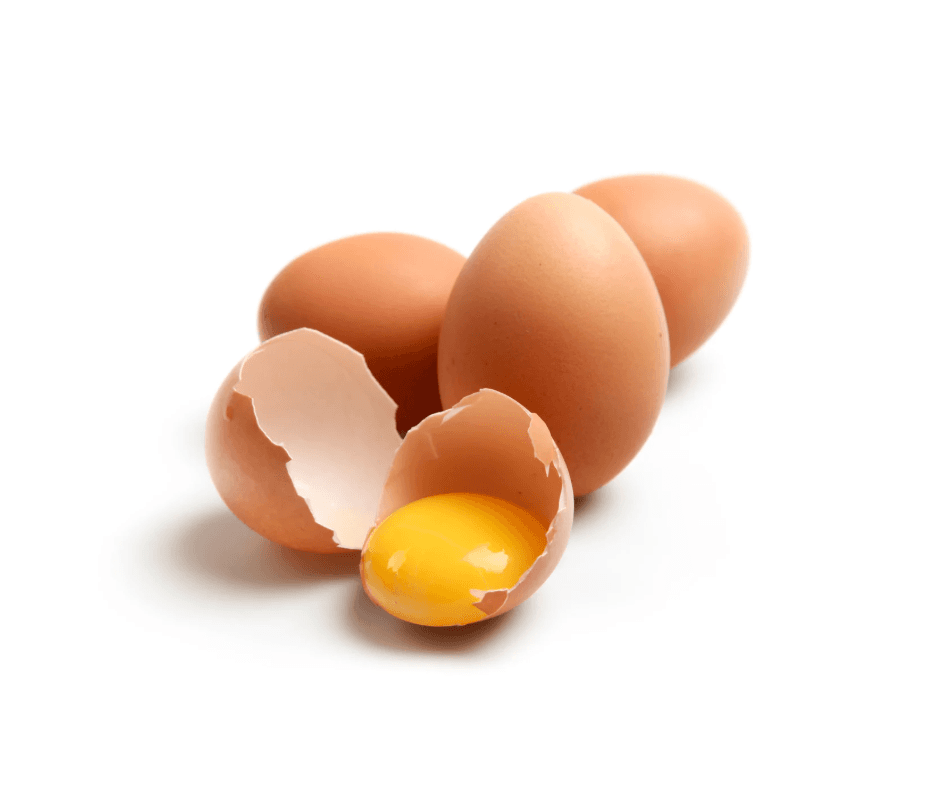Eggs
Eggs are a nutritious food for both dogs and cats. They are rich in protein, fat, vitamin A, vitamin D, calcium, iron, and many other essential nutrients.

Protein, in particular, is one of the most important nutrients that dogs and cats must regularly consume for their overall health.
Protein
Protein is essential for the healthy growth and development of dogs and cats. It helps build bones, muscles, skin, and fur, and also plays a key role in strengthening the immune system, tissue repair, and metabolic processes.
Fat
Fat is an important source of energy for dogs and cats. When consumed in appropriate amounts, it also helps regulate blood pressure and stabilize blood sugar levels. In addition, fat provides essential fatty acids that help maintain healthy skin and coat, and it contributes to a stronger immune system.
Vitamin A
Vitamin A plays an important role in strengthening the immune system, as well as supporting the health of the eyes, skin, bones, and teeth. It also helps with cell division, growth, immune cell function, and contributes to overall oral health.
Vitamin D
Vitamin D helps strengthen bones and teeth. It also supports immune system function and plays a vital role in cell division and growth.
Calcium
Calcium is essential for maintaining strong bones and teeth. It is also involved in muscle contraction, blood clotting, and nerve transmission, helping regulate various bodily functions.
Iron
Iron plays a critical role in blood cell production. It also helps strengthen the immune system and is essential for oxygen transport throughout the body.
How Should Eggs Be Fed?
Eggs are rich in protein, amino acids, vitamins, and minerals that dogs and cats need, making them a nutritious food source. However, because raw eggs may contain harmful bacteria such as Salmonella, it’s safest to boil or cook them thoroughly before feeding, or offer them in small amounts.
Recommended Serving Size
One whole egg may be too much depending on your pet’s weight. For example, for a 5 kg dog or cat, about 1/4 of an egg per day is an appropriate amount.
Precautions When Feeding Eggs
- Because of the risk of Salmonella and other bacteria, cook eggs thoroughly or give in small amounts. If feeding raw eggs, ensure they are safe and bacteria-free.
- If your pet already receives sufficient nutrients from other sources, extra egg consumption may cause nutrient overload.
- Overfeeding eggs can lead to obesity, pancreatitis, or dental problems — maintain moderation.
Summary
Eggs provide high-quality protein, healthy fats, vitamins (A, D), and minerals (calcium, iron) that support growth, immunity, skin/coat, and overall health in dogs and cats. Serve cooked, use small portions appropriate to body weight, and avoid overfeeding to prevent digestive or metabolic issues.